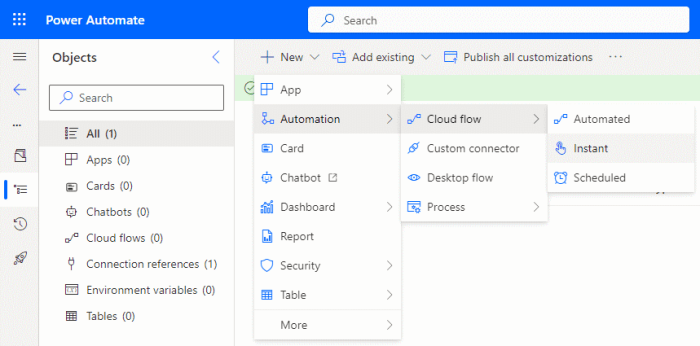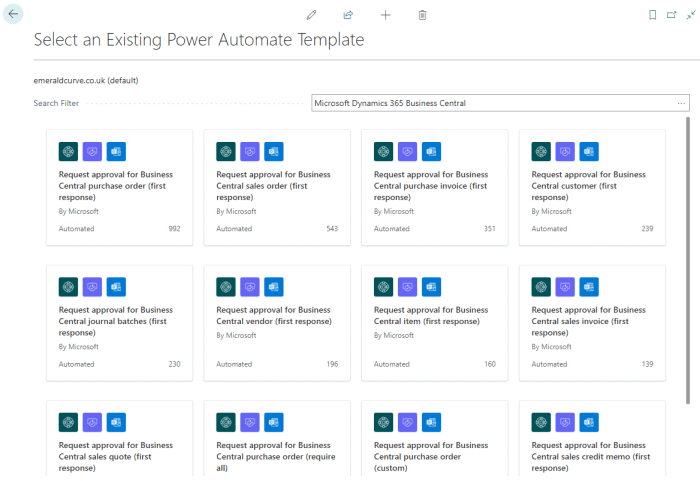Delving into How to Automate Customer Support using AI That Work in 30 Tools, businesses today are increasingly recognizing the power of automation in reshaping customer interactions. By leveraging AI technologies, companies can not only streamline their support processes but also enhance efficiency and satisfaction among their customer base.
In this exploration, we will uncover the essential tools and strategies that empower businesses to elevate their customer support game. From implementing chatbots to utilizing AI-driven knowledge bases, this guide will provide a comprehensive overview of how automation can transform your customer service experience.
Introduction to Automating Customer Support
In today’s fast-paced digital landscape, businesses are continually seeking ways to enhance customer satisfaction while optimizing operational efficiency. Automation in customer support has become a pivotal strategy that allows companies to respond to customer inquiries promptly and effectively, ultimately improving the overall customer experience. By leveraging AI technologies, businesses can streamline their support processes, ensuring that customers receive timely assistance and personalized responses.AI technologies, such as chatbots, natural language processing, and machine learning algorithms, significantly enhance the efficiency of customer service operations.
These technologies enable organizations to manage a higher volume of customer interactions without sacrificing quality. For instance, chatbots can handle common inquiries around the clock, providing instant responses and freeing human agents to focus on more complex issues. This leads to a more efficient workflow, where AI handles repetitive tasks while human agents engage in meaningful interactions that require empathy and nuanced understanding.
Key Benefits of Automating Customer Support
The automation of customer support processes offers several key advantages that contribute to enhanced operational performance and customer satisfaction. Understanding these benefits is crucial for businesses looking to implement effective customer support strategies.
- Increased Response Speed: Automated systems can provide immediate answers to customer inquiries, reducing wait times significantly and improving the customer experience.
- 24/7 Availability: AI-powered support tools ensure that customers can receive assistance at any hour, enhancing accessibility and convenience.
- Cost Efficiency: By automating routine tasks, companies can reduce labor costs associated with customer support, allowing resources to be allocated more effectively.
- Consistency in Responses: AI tools provide standardized answers to frequently asked questions, ensuring that customers receive uniform information regardless of when or how they reach out.
- Data Collection and Insights: Automated support systems can gather valuable data from customer interactions, helping businesses identify trends and improve their services based on customer feedback.
“Automation in customer support is not just about efficiency, but about creating a seamless experience that anticipates customer needs.”
Companies that have adopted automation, such as Zendesk and Freshdesk, have reported significant improvements in customer satisfaction ratings and operational efficiency. These tools not only enhance service delivery but also enable businesses to scale their operations without corresponding increases in overhead costs. As automation continues to evolve, its role in customer support will only become more integral in shaping how businesses interact with their clientele.
Overview of AI Tools for Customer Support

Automating customer support using AI tools can significantly enhance efficiency and improve customer satisfaction. In this section, we will explore the leading AI tools that have emerged in the market, their features, functionalities, and pricing models, providing a comprehensive overview to help businesses make informed decisions.Understanding the landscape of AI tools for customer support is essential for any business looking to optimize its operations.
Numerous platforms offer an array of features designed to streamline customer interactions, enhance response times, and reduce operational costs. Below, we will discuss some of the top contenders in this space.
Top AI Tools for Customer Support
The following tools are recognized for their comprehensive capabilities in automating customer support:
- Zendesk AI: This tool integrates seamlessly with the Zendesk platform, offering automated ticketing, chatbots, and advanced analytics.
- Freshdesk: Known for its user-friendly interface, Freshdesk employs AI to manage customer queries through bots and AI-driven insights.
- Intercom: Intercom provides personalized messaging through AI chatbots that learn from customer interactions, enhancing user engagement and satisfaction.
- Drift: This AI-powered tool focuses on real-time communication, enabling businesses to engage with customers instantly through a chat interface.
- LivePerson: Leveraging AI and machine learning, LivePerson enables businesses to offer conversational experiences and automate customer interactions across various platforms.
Comparison of Features and Functionalities
When selecting an AI customer support tool, businesses should consider key features that differentiate each option. The comparison below highlights core functionalities across selected platforms:
| Tool | AI Capabilities | Integration Options | Reporting & Analytics | Customization |
|---|---|---|---|---|
| Zendesk AI | Automated ticket resolution, AI chatbots | CRM, social media, email | Advanced dashboards, performance metrics | Highly customizable workflows |
| Freshdesk | AI-driven ticket management, chatbots | CRM, productivity tools | Real-time reporting, insights | Moderate customization options |
| Intercom | Personalized messaging, learning bots | CRM, websites, mobile apps | Customer engagement analytics | Extensive customization capabilities |
| Drift | Real-time chat automation | CRM, email marketing | Engagement and sales metrics | Custom chat flows |
| LivePerson | Conversational AI, machine learning | Social media, SMS, websites | Conversation insights, analytics | Robust customization |
Pricing Models of AI Customer Support Tools
Pricing can vary significantly among AI customer support tools based on features, user limits, and service levels. Understanding pricing structures is crucial for budgeting and selecting the right tool. Below is an overview of typical pricing models:
- Subscription-based pricing: Most tools operate on a monthly or annual subscription model, where businesses pay based on the number of agents or active users.
- Pay-per-use pricing: Some platforms charge based on the volume of interactions or queries handled by the AI, making it cost-effective for businesses with fluctuating support needs.
- Freemium models: Certain tools offer basic features for free, allowing businesses to try the service before committing to a paid plan for advanced functionalities.
- Tiered pricing: Many providers offer different pricing tiers that unlock additional features, support levels, and integrations, catering to various business sizes and needs.
Implementing Chatbots in Customer Support

In the age of instant communication, chatbots have emerged as vital tools for enhancing customer support. They offer quick responses, 24/7 availability, and the ability to handle multiple inquiries simultaneously. Implementing a chatbot can streamline customer interactions and improve satisfaction levels, making it essential for businesses looking to enhance their support services.To effectively implement chatbots in customer support, an organized approach is crucial.
This involves several steps, from defining the chatbot’s purpose to training it with relevant data. Below are detailed steps that can guide the implementation process.
Steps to Design and Implement Chatbots
The implementation of chatbots requires careful planning and execution to ensure they meet customer needs. Here are the key steps involved in this process:
1. Define Objectives
Establish clear goals for what the chatbot should achieve, such as answering FAQs, handling transactions, or booking appointments.
2. Choose a Chatbot Platform
Select a platform that aligns with your business needs, resources, and technical capabilities.
3. Design Conversation Flows
Create scripts for various scenarios that Artikel how the chatbot should respond to different queries.
4. Integrate with Existing Systems
Ensure the chatbot can connect with your CRM, databases, and other tools for seamless operations.
5. Train the Chatbot
Use machine learning techniques to train the chatbot on common customer queries and appropriate responses.
6. Test and Iterate
Conduct thorough testing to identify gaps in performance and refine the chatbot’s responses based on user feedback.
7. Monitor Performance
Regularly track the chatbot’s interactions and performance metrics to improve its capabilities over time.
Best Practices for Creating Effective Chatbot Conversations
Creating meaningful interactions is at the heart of a successful chatbot. The following best practices can enhance your chatbot’s conversational abilities:
Keep it Simple
Use simple language that is easy for users to understand, avoiding jargon and complex terms.
Use Personalization
Tailor responses based on user data to create a more engaging experience.
Provide Quick Options
Offer users quick reply buttons for common queries to enhance response times.
Include Fallback Responses
Design responses for when the bot doesn’t understand a question, guiding users to human support if necessary.
Utilize Contextual Awareness
Ensure the chatbot remembers the context of the conversation to provide more relevant answers as the interaction progresses.
“An effective chatbot not only answers questions but also understands user intent, improving the overall customer experience.”
Comparison of Chatbot Platforms
When selecting a chatbot platform, it’s important to consider various factors such as ease of use, integration capabilities, and customization options. Below is a comparison table summarizing different chatbot platforms based on performance metrics.
| Platform | Ease of Use | Integration Options | Customization Level | Pricing |
|---|---|---|---|---|
| Chatbot A | High | Multiple APIs | Moderate | $20/month |
| Chatbot B | Medium | Limited | High | $50/month |
| Chatbot C | Low | Extensive | Basic | $10/month |
| Chatbot D | High | Multiple APIs | High | $30/month |
Choosing the right chatbot platform can significantly influence the effectiveness of your customer support strategy. Understanding the features and limitations of each option will help in making an informed decision that aligns with business objectives.
Utilizing AI-Powered Knowledge Bases
Creating a comprehensive knowledge base is pivotal for enhancing customer support through AI. A well-structured knowledge base empowers customers to find answers to their queries instantly, reducing dependency on live agents and improving overall satisfaction. By leveraging AI technology, businesses can streamline the creation and management of these knowledge bases, ensuring that the information is both relevant and easily accessible.When building an AI-powered knowledge base, the initial step is to gather data from various sources such as customer interaction logs, FAQs, and product documentation.
This data serves as the foundation for populating the knowledge base. AI tools can analyze this information, identify common queries, and create articles or answers automatically. Additionally, AI can continuously learn from customer interactions, allowing the knowledge base to evolve over time.
AI Tools for Building Knowledge Bases
Incorporating the right AI tools can significantly enhance the efficiency and effectiveness of a knowledge base. Here are some notable examples of AI tools designed for building and managing knowledge bases:
- Zendesk Guide: This tool uses AI to suggest relevant articles to customers based on their inquiries, ensuring they find the information they need quickly.
- Helpjuice: This platform allows teams to collaboratively create and manage a knowledge base, leveraging AI to improve search capabilities and article recommendations.
- Freshdesk: By utilizing AI, Freshdesk can organize knowledge base articles and present them in a user-friendly format, enabling quick access to information.
- Intercom: Intercom’s AI-driven help center automatically categorizes and prioritizes articles based on customer interactions and feedback, keeping the content relevant and up-to-date.
- Kaltura: This platform enables organizations to create video-based knowledge base content, enhancing the learning experience and providing clear guidance to customers.
Integrating a knowledge base with customer support systems is crucial for ensuring a seamless experience. The combination allows customer support agents to access information quickly while assisting customers, thus reducing response times. AI can facilitate this integration by linking the knowledge base to chatbots and ticketing systems. When a customer initiates a query, the system can use AI to pull relevant articles from the knowledge base, presenting them in real-time to both the customer and the support agent.
A well-integrated knowledge base not only enhances customer experience but also empowers support teams with the information they need to resolve issues efficiently.
Through effective utilization of AI-powered knowledge bases, organizations can enhance their customer support operations, making it easier for customers to find answers while simultaneously streamlining the workload for support teams.
Automating Ticketing Systems
Automating ticketing systems is a crucial step in enhancing customer support efficiency. By leveraging AI, organizations can streamline their ticket management processes, ensuring that customer inquiries are handled promptly and accurately. This not only improves response times but also enhances customer satisfaction, making it an essential focus for businesses looking to optimize their support operations.AI can significantly enhance ticket management systems by providing intelligent automation features.
Automating ticket routing and prioritization helps support teams manage high volumes of requests more effectively. By using machine learning algorithms, AI can analyze incoming tickets and direct them to the appropriate support staff based on factors such as urgency, topic, or customer history, ensuring that each ticket is addressed by the most qualified agent.
Benefits of AI for Ticket Management
Utilizing AI in ticket management systems brings several key benefits that improve overall customer service quality. Here are some of the primary advantages:
- Enhanced Efficiency: AI reduces the time spent on manual ticket sorting, allowing support staff to focus on resolving issues rather than managing queues.
- Improved Prioritization: AI algorithms can assess the urgency of each ticket, ensuring that critical issues are addressed first.
- Reduced Response Times: With automated routing, customers receive faster responses, leading to higher satisfaction levels.
- Consistent Quality: AI can maintain a standard in ticket handling, minimizing human errors and ensuring a uniform customer experience.
- Data-Driven Insights: AI systems can provide valuable analytics on ticket trends, helping organizations improve their support strategies over time.
Popular Ticketing Systems and Their AI Features
Many ticketing systems have integrated AI features that enhance their functionality. Understanding which platforms offer robust AI capabilities can help businesses choose the right tools for their needs. Below is a table highlighting several popular ticketing systems and their key AI features:
| Ticketing System | AI Features |
|---|---|
| Zendesk | Automated ticket routing, AI-powered chatbots, sentiment analysis |
| Freshdesk | AI ticket classification, automated responses, predictive analytics |
| ServiceNow | Intelligent ticket routing, virtual agents, machine learning insights |
| HappyFox | AI suggestions for agents, automated tagging, performance analytics |
| Zoho Desk | Automated ticket prioritization, AI-driven customer insights, response automation |
Leveraging AI for Personalized Customer Interactions
In today’s competitive landscape, personalization in customer support is more than just a buzzword; it’s a necessity. With AI, businesses can analyze customer data to provide tailored experiences that resonate with individual preferences and needs. This not only enhances customer satisfaction but also builds loyalty and trust.AI enhances personalization in customer support by utilizing advanced algorithms to analyze vast amounts of customer data.
This analysis allows businesses to understand customer behavior, preferences, and past interactions, enabling them to deliver more relevant and timely responses. By employing machine learning techniques, AI systems can continuously learn and adapt to new information, ensuring that interactions remain personalized over time.
Methods to Analyze Customer Data for Tailored Communication
Analyzing customer data effectively is crucial for crafting personalized communications. Understanding which methods to employ can significantly improve the quality of customer interactions. Here are several methods to consider:
- Segmentation: Group customers based on demographics, purchase history, and behavior to tailor messages that resonate with each segment’s unique needs.
- Behavioral Analysis: Track customer interaction patterns, such as website visits and product usage, to identify preferences and predict future behavior.
- Sentiment Analysis: Utilize natural language processing (NLP) to assess customer sentiments from various interactions, such as feedback and reviews, to understand their feelings towards products or services.
- Predictive Analytics: Leverage historical data and machine learning models to forecast future customer behavior and proactively address needs or concerns.
Successful Examples of Personalized AI Implementations in Customer Support
Several companies have successfully integrated AI to enhance personalization in their customer support operations. These examples highlight the potential benefits and effectiveness of such implementations:
- Amazon: The platform utilizes AI algorithms to analyze browsing and purchase history, enabling personalized recommendations and tailored marketing messages, enhancing the shopping experience for users.
- Sephora: By incorporating AI in its mobile app, Sephora offers personalized beauty advice and product suggestions based on user preferences and past purchases, creating a highly engaging experience.
- Netflix: Through advanced recommendation systems powered by AI, Netflix personalizes content suggestions based on user viewing history and preferences, leading to increased viewer satisfaction and retention.
Personalization through AI transforms customer support from a reactive process into a proactive relationship-building strategy.
Monitoring and Evaluating AI Performance

Monitoring and evaluating AI performance in customer support is essential to ensure that the implemented systems are delivering the expected results. This process involves tracking various metrics that reflect how well the AI is functioning and how satisfied customers are with their interactions. Understanding these metrics allows businesses to make data-driven adjustments to enhance the effectiveness of their AI systems.To assess the effectiveness of AI in customer support, the following metrics are crucial:
First Response Time (FRT)
Measures the time taken for the AI to respond to a customer’s inquiry. A lower FRT indicates a more efficient AI system.
Resolution Rate
The percentage of customer inquiries resolved by the AI without human intervention. A higher rate suggests better performance.
Customer Satisfaction Score (CSAT)
Captures the customer’s satisfaction level after an interaction with the AI. This is often gathered through follow-up surveys.
Net Promoter Score (NPS)
Gauges customer loyalty by asking how likely they are to recommend the service to others after interacting with the AI.
Escalation Rate
The number of inquiries that require human intervention. A lower escalation rate indicates the AI’s capability in handling queries effectively.Collecting feedback from customers regarding AI interactions is vital for continuous improvement. Techniques for gathering this feedback include:
Post-Interaction Surveys
Brief surveys sent immediately after an interaction, allowing customers to rate their experience.
Feedback Forms
Incorporation of comment sections in the support interface where customers can share their thoughts and suggestions.
Monitoring Social Media and Online Reviews
Engaging with customers on platforms where they discuss their experiences can provide real-time insights.When evaluating AI performance, organizations may encounter several challenges. Recognizing these challenges can help teams address them proactively. Common challenges include:
- Difficulties in distinguishing between AI performance and human performance metrics.
- Inconsistent data collection methods that can skew results.
- Customer reluctance to provide honest feedback, affecting the reliability of satisfaction scores.
- Integration issues with existing CRM systems, leading to incomplete data.
- The rapid pace of AI technology evolution, making it hard to keep evaluation frameworks up to date.
“Data-driven adjustments are key to enhancing the effectiveness of AI systems in customer support.”
Future of AI in Customer Support

The landscape of customer support is on the cusp of a transformation powered by artificial intelligence. As technology evolves, the integration of AI into customer support is predicted to become more sophisticated, resulting in enhanced customer experiences and operational efficiencies. This section explores emerging trends in AI customer support automation, potential advancements, and the industries that stand to gain the most from these developments.
Emerging Trends in AI Customer Support Automation
A key trend in AI customer support is the increasing use of machine learning algorithms to analyze customer interactions and predict needs. Organizations are leveraging these insights to tailor their services more effectively. Another notable trend is the rise of sentiment analysis, allowing companies to gauge customer emotions and adjust responses accordingly, fostering stronger relationships. Several advancements are expected to play a pivotal role in shaping the future of customer support:
- Conversational AI: Advanced chatbots and virtual assistants will continue to evolve, offering more natural interactions and understanding context better than ever before.
- Predictive Analytics: AI will analyze historical data to anticipate customer issues before they arise, enabling proactive support strategies.
- Integration of Voice Technology: Voice-activated systems will facilitate hands-free customer support, making it easier for users to seek assistance.
Implications of Advancements for Customer Service
The advancements in AI technology will significantly reshape customer service strategies. Organizations will be able to deliver highly personalized experiences, ensuring customers feel valued and understood. Furthermore, the efficiency of support operations is expected to improve as AI automates repetitive tasks, allowing human agents to focus on complex issues.A crucial implication is the need for companies to adapt to an omnichannel support environment.
Customers will expect seamless transitions between channels (like chat, email, and social media), necessitating integrated AI systems capable of tracking customer history across platforms.
Industries Benefiting from AI in Customer Support
Certain industries are particularly well-positioned to harness the benefits of AI in customer support. The following sectors can expect substantial gains:
- Retail: E-commerce businesses can use AI to provide personalized shopping experiences and efficient handling of inquiries about products.
- Healthcare: AI can streamline appointment scheduling and provide quick responses to patient queries, enhancing patient satisfaction.
- Travel and Hospitality: Companies can automate check-in processes and provide real-time updates on flight statuses, improving overall customer experiences.
As AI continues to evolve, it represents not just a tool for efficiency but a transformative approach that redefines customer engagement across multiple industries.
Closure

In conclusion, the integration of AI in customer support is not just a trend; it’s the future of delivering exceptional service. As we look ahead, embracing these innovative tools will pave the way for more personalized, efficient, and reliable customer interactions. By staying informed about emerging trends and continuously optimizing AI performance, businesses can ensure they remain at the forefront of customer support excellence.